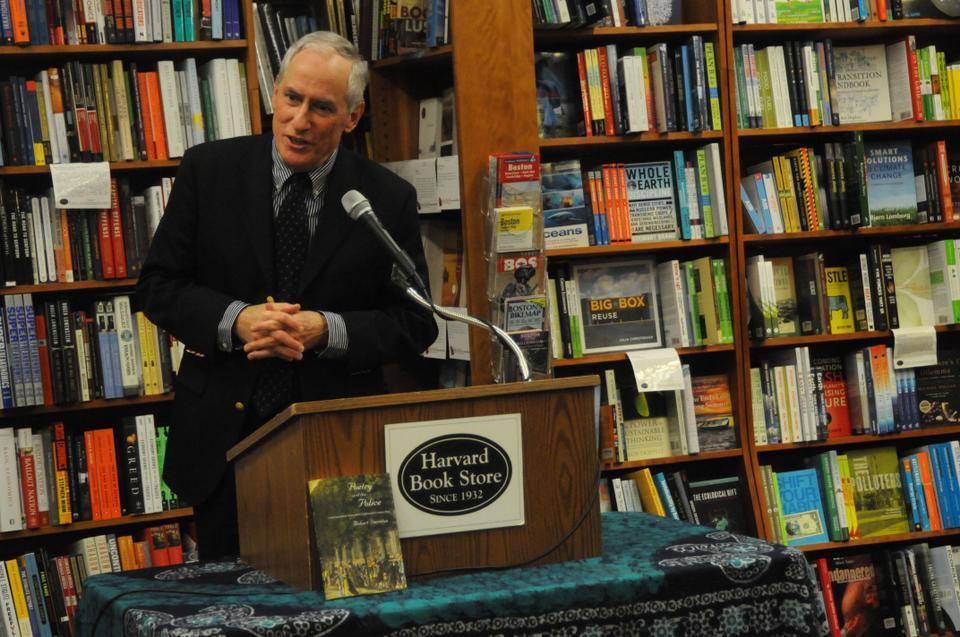
News
Summers Will Not Finish Semester of Teaching as Harvard Investigates Epstein Ties

News
Harvard College Students Report Favoring Divestment from Israel in HUA Survey

News
‘He Should Resign’: Harvard Undergrads Take Hard Line Against Summers Over Epstein Scandal

News
Harvard To Launch New Investigation Into Epstein’s Ties to Summers, Other University Affiliates

News
Harvard Students To Vote on Divestment From Israel in Inaugural HUA Election Survey
University Library Director Delves Into French Poetry

Robert C. Darnton ’60, director of Harvard University Library, discussed his new book, “Poetry and the Police: Communication Networks in Eighteenth-Century Paris,” at the Harvard Book Store last night.
The book tells the story of the “Affair of the Fourteen,” a police crackdown in 1749 France that resulted in the arrest of 14 students, young priests, and clerks for unauthorized poetry recitals. It also describes a world in which information traveled orally through songs and poems.
Standing behind a wooden podium, Darnton told the audience that he wrote the book for two purposes: “One is for fun,” he said. “It is written not just for other history professors, but for the general public.”
Darnton related the book to a detective story in which readers follow the police officers as they track the suspects through the streets of Paris.
Darnton said that the second purpose, a more serious one, was to explore the history of communication and understand how information travels. French newspapers in the 18th century faced heavy censorship, so the public relied on gossip and oral communication to gather information, according to Darnton.
“Oral communication system is the most difficult for historians to trace,” Darnton said, “because it disappears through air.”
Poems in 19th century France were disseminated by being copied, read aloud, passed around on pieces of paper, and, most effectively, sung on the streets of Paris, according to Darnton.
“Music is a great mnemonic device,” he said. “Think about it. Isn’t it true you always carry around in your head a repertoire of tunes?”
During the discussion, Darton recited some of the poems in French and played a recording of songs by cabaret artist Hélène Delavault.
“This is a very lovely, simple ballad,” Darnton said, referring to one of the songs.
Emily W. Hogue, resident of Medford and a recent graduate of Bennington College in Bennington, Vt., said she had read one of Darnton’s previous works, “The Great Cat Massacre,” and wanted to hear him speak about his new book. Having studied 18th century England in college, Hogue said that she was interested in reading about France during the same time period.
“I want readers to enjoy themselves, and find that history is, indeed, fun,” Darnton said.
Want to keep up with breaking news? Subscribe to our email newsletter.
